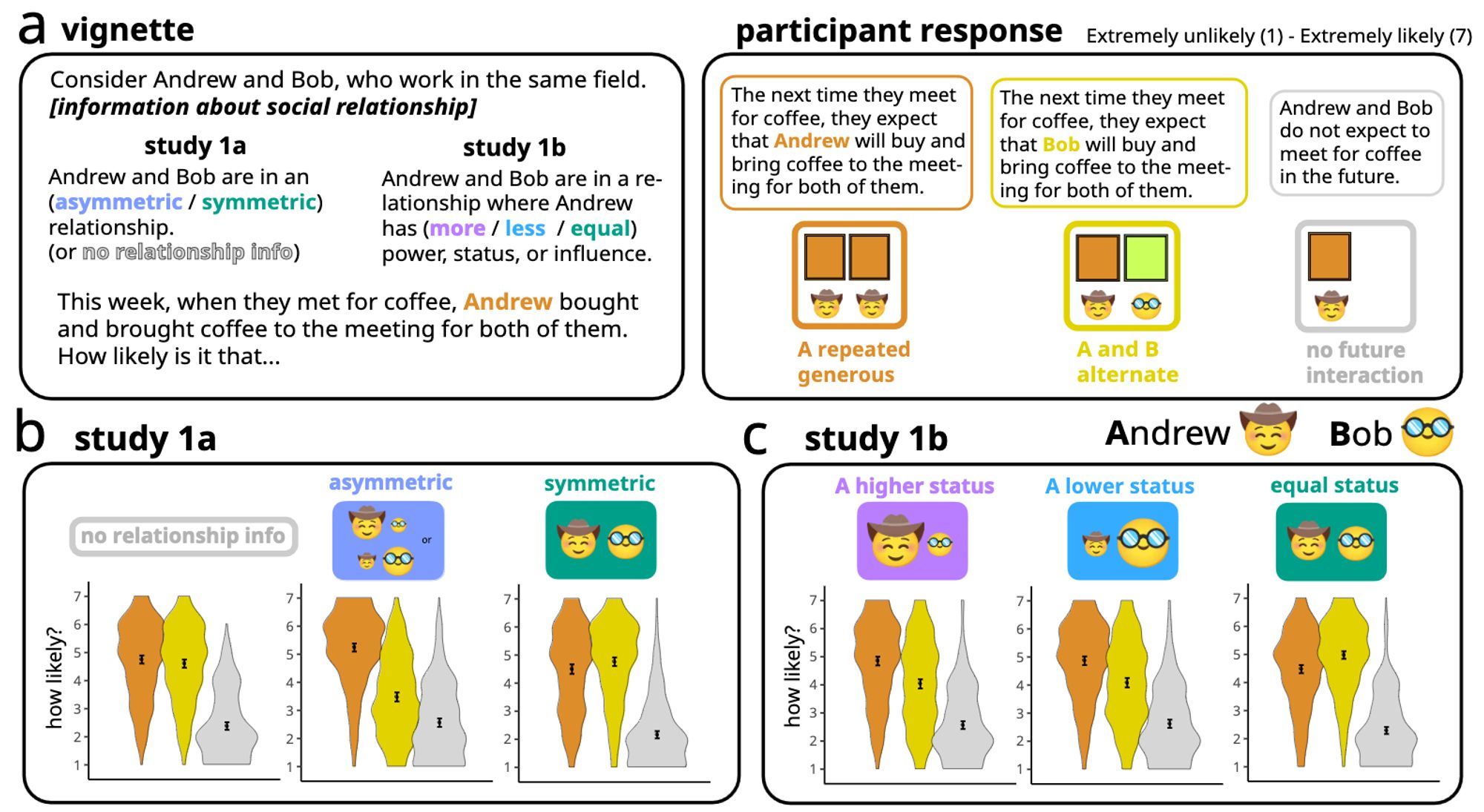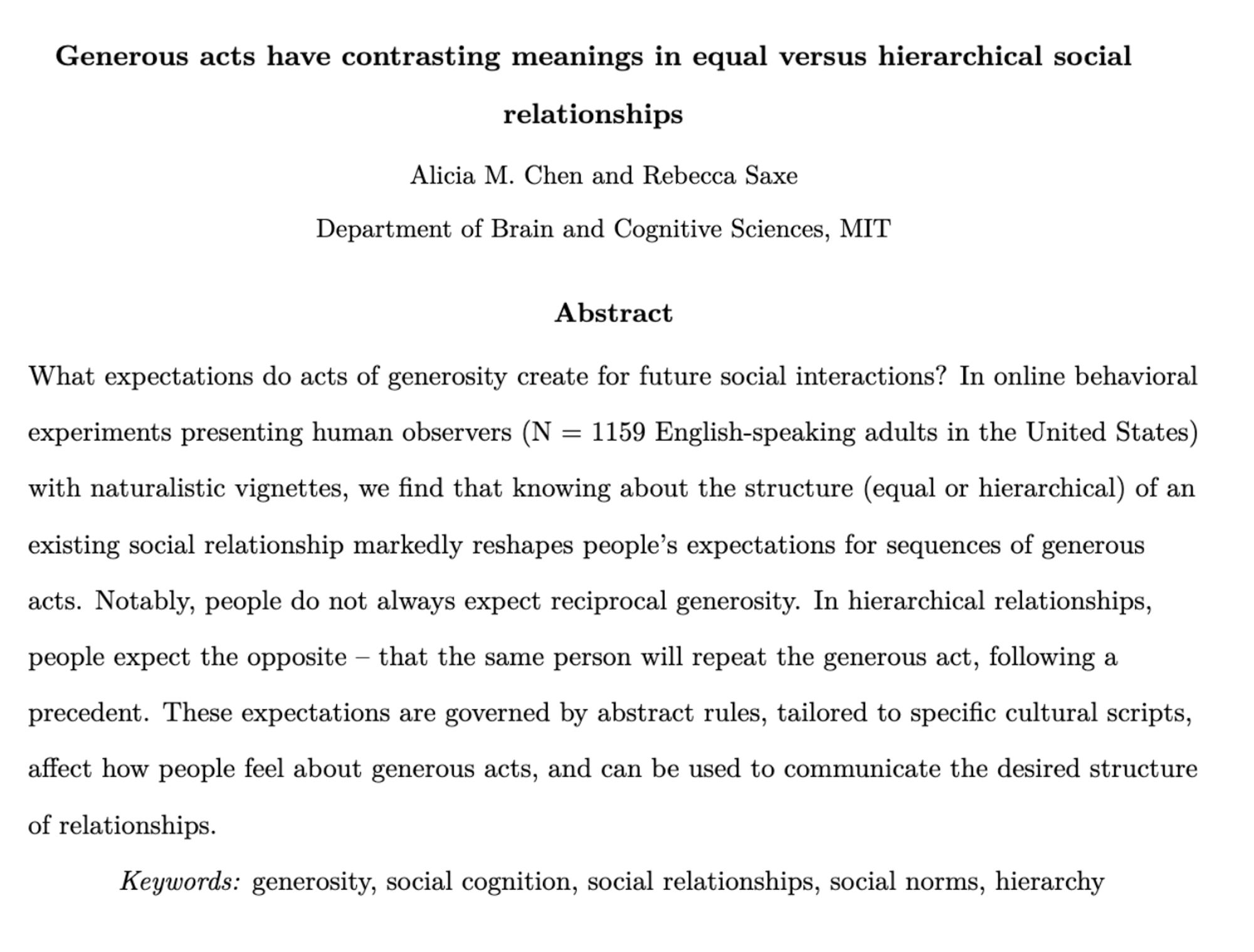Finally, people use the structure of the social relationship to adjust their emotional and moral evaluations of generous acts (although they do evaluate alternating actions better than repeating actions, across the board) (10/11)
So generous acts can potentially establish and communicate about relationships. In fact, we found that people do expect that communicating about a desired equal relationship is a primary motivation for alternating generosity (9/11)
We also found that people use generous acts to make analogous *inferences* about relationships. People expect that two people are in a hierarchical social relationship when actions repeat, and that they are in an equal relationship when actions alternate. (8/11)
2️⃣ It *is* governed by abstract rules about sequences of acts and how people think about these rules in relation to the social relationship. 3️⃣ But it is *also* tailored to specific cultural scripts people have, for specific types of scenarios. (7/11)
Next, we looked at why people have these expectations in the first place. Our findings: 1️⃣It’s *not* because people expect the higher-status person to repeatedly extract benefit/resources from the lower-status person. (6/11)
And when we told them that the two people in the scenario are in a hierarchical relationship (i.e. a relationship where one person has more power/status/influence than the other), people’s expectations changed drastically, and they *strongly* expected repeating actions, over alternating (5/11)

Here, we instead showed people naturalistic scenarios describing a variety of everyday generous acts (like buying someone coffee). With this small amount of extra context, people did *not* expect reciprocal (alternating) actions, over one person being repeatedly generous… (4/11)
Lots of previous work on generosity has shown that reciprocal generosity is typical and expected. But this has traditionally been studied in the context of economic games, where people evaluate numerical payoffs (3/11)
Imagine that you offer to buy someone coffee. What kind of expectations does this create, for what happens the next time? Does it create an expectation that the other person pays next time (reciprocal generosity)? Or does it create an expectation that you will pay again next time? (2/11)
